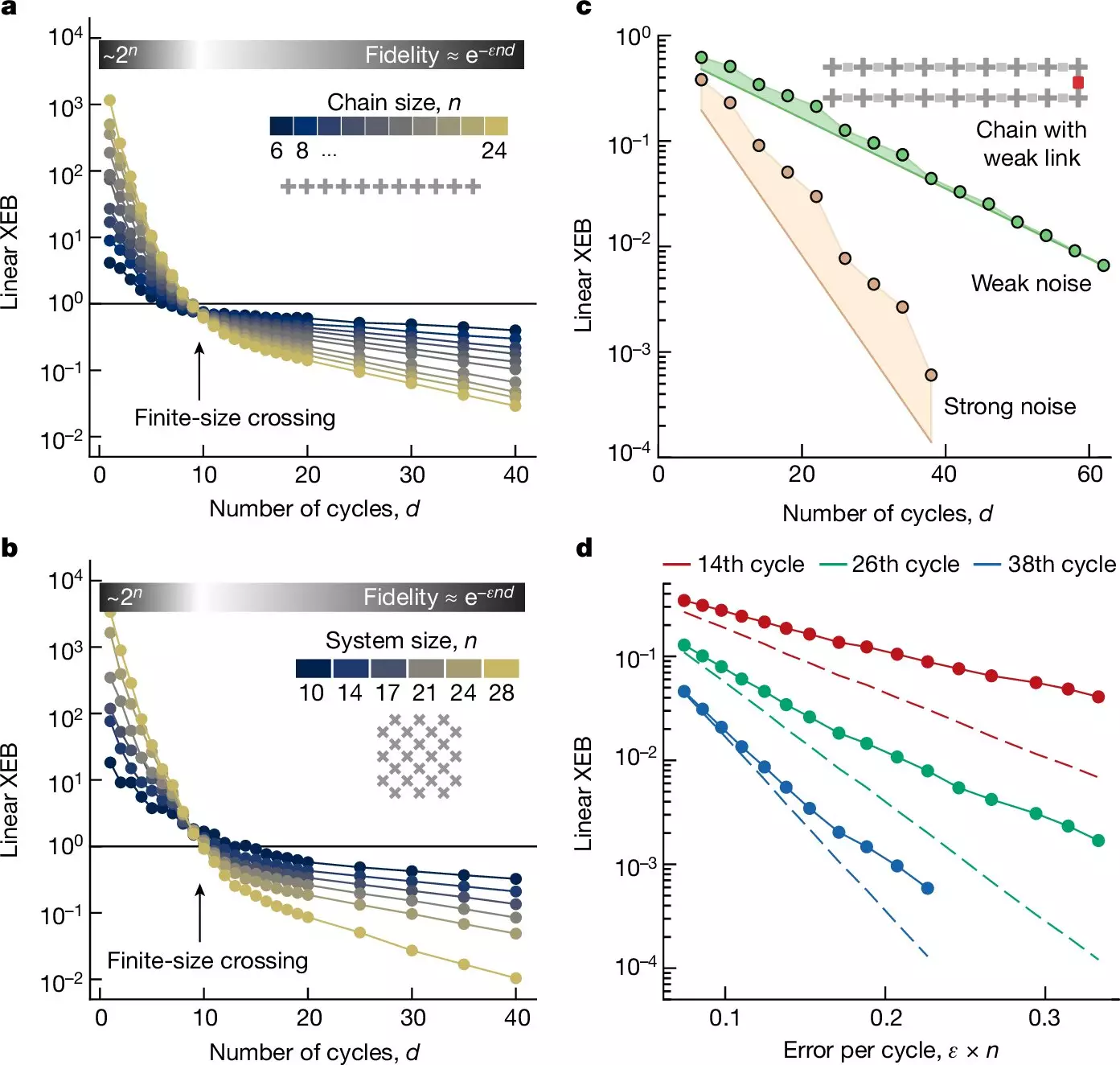In recent years, quantum computing has transitioned from theoretical discussions to palpable advances, particularly exemplified by a team of specialists at Google Research. Their recent study, published in the prestigious journal *Nature*, showcases a critical leap forward: the Sycamore quantum chip has demonstrated the capability to outperform classical computers in executing random circuit sampling (RCS) tasks. This promising achievement highlights a significant milestone in the ongoing journey toward realizing practical quantum computing.
Central to the study is the RCS algorithm, which serves as a benchmark for evaluating quantum processors against classical machines. While RCS may seem simplistic—consisting primarily of generating a sequence of random numbers—the implications of mastering such processes are profound. It lays the groundwork for establishing the computational superiority of quantum systems over classical ones, a long-sought goal in computer science that could revolutionize fields ranging from cryptography to complex modeling.
A key barrier in the effective functioning of quantum computers has been the interference caused by environmental noise. Quantum systems are notoriously sensitive to external factors, which can induce errors in computation. Variations in temperature, fluctuations in magnetic fields, and even cosmic radiation contribute to this detrimental noise, impacting the integrity of quantum calculations. The Google team has dedicated significant resources to understand and mitigate these influences, paving the way for more reliable quantum computing.
The researchers implemented groundbreaking techniques to minimize noise levels while running their Sycamore chip. One of the most effective strategies included housing the chip in an ultra-cold chamber, almost at absolute zero, drastically reducing the thermal noise that typically plagues quantum algorithms. This attention to the operational environment yielded remarkable results. By enhancing the chip’s error-free operation from 99.4% to 99.7%, they unlocked new levels of performance, ultimately demonstrating a genuine “quantum advantage.”
With this achievement, the researchers have provided evidence that quantum processors can indeed surpass classical computers under specific conditions. This bolstered performance is particularly significant for the future of quantum computing, as it suggests that ongoing innovations in error correction and noise management can bridge the gap between theoretical capabilities and practical applications. The results reinforce the optimism surrounding the potential for quantum computers to tackle tasks that are currently out of reach for even the most powerful classical supercomputers.
While significant hurdles remain in the journey toward a universally applicable quantum computer, advancements like those from Google Research serve as stepping stones. The ongoing exploration into the interplay between noise, error rates, and computing power may one day allow quantum machines to fulfill their initial promise: solving complex algorithms in mere moments that would take traditional systems eons. As research progresses, the prospect of a transformative shift in computation becomes increasingly tangible, further igniting interest in the potential of quantum technologies in various sectors.

